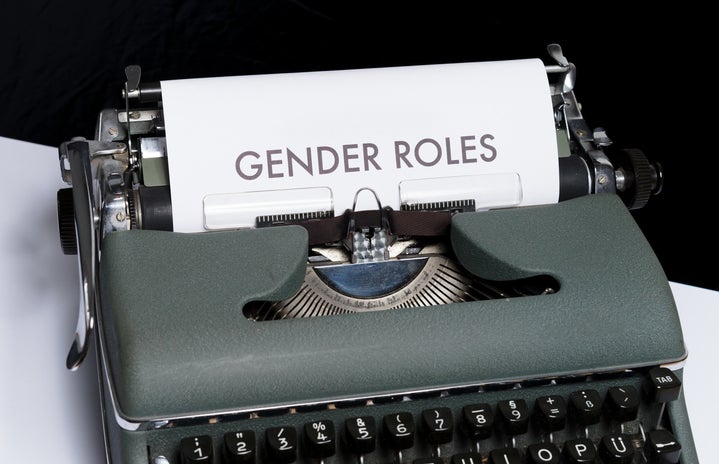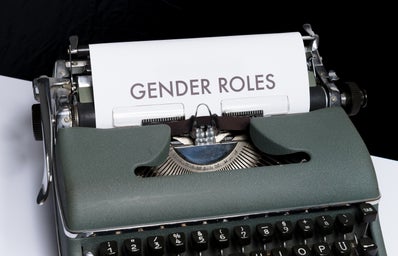A man’s place is in the world. He explores and searches far and wide for what his heart desires and needs. Or, at least, that’s what Machismo teaches.
Machismo defines the male’s role in Latin communities and emphasizes that men are the primary breadwinners in a household, Berta E. Hernandez-Truyol, the Stephen O’Connell chair and a human rights scholar, said. Hernandez-Truyol, who has written academic pieces on the subject, said that Machismo and Marianismo, which refers to the woman’s role in society, are deeply entrenched in Latin communities. While the woman stays at home and cares for the children, the male is expected to work and to conquer the world.
Marianismo stems from the idea that women should aim to be like the Virgin Mary or La Virgin Maria, who is the mother of Jesus Christ in Catholicism, Hernandez-Truyol said. La Virgin Maria represents a strong woman who suffers to keep her family alive. Women in Latin cultures are expected to follow La Virgin Maria’s model, and it presents itself through submission.
Machismo, on the other hand, stemmed from the word “Macho.” Macho means male in the Spanish language, but it has become associated with strength, power and conquest – whether that be of women or of the world around them, Hernandez-Truyol said.
The gender roles are not only limited to Latin American countries but are shared through women who migrate to the United States because women are the transmitters of culture, she said. Women transmit Marianismo and Machismo when they raise their children and recite different oral histories from their home countries.
Hernandez-Truyol said an example of gender role reinforcement is when Latino boys are not allowed to partake in traditionally feminine activities like ballet. Girls can also be limited from climbing trees or participating in other traditionally masculine activities, too.
“It means you’re a good woman if you submit, if you don’t speak, if you are submissive which really means that you’re more like a servant,” she said. “But, that is the ideal.”
Particularly, when speaking about college students, Machismo and Marianismo can present themselves when students venture into the dating world, Hernandez-Truyol said. Men will seek to show off, and women will seek to please. Additionally, LGBTQ+ members of the Latin community have a pressure to conform to these ideals because family members enforce gender roles at times.
In the Latin community, familial approval and ties push young community members to conform to gender roles because they want mothers, fathers and grandmothers to accept them.
Sophia De La Cruz, an 18-year-old UF international student and political science freshman, defined Machismo as the denial of emotions. Throughout her life, her Hispanic male friends have struggled to express how they feel, she said. Or, they present frustration through anger rather than sadness.
De La Cruz, whose father is from the Dominican Republican, said Machismo doesn’t affect her family much. She has seen her grandmother, who she preferred not to name, cook. However, the males in her family also take on similar duties and help.
On the other hand, she said that machismo can be damaging to relationships because people create connections through vulnerability.
Andrew Markas, an 18-year-old Dominican UF business administration freshman, has visited the Dominican Republic to spend Christmas and New Year’s with his family. Markas said that Machismo isn’t as prominent in the United States, but he has seen women regularly cooking and cleaning in the Dominican Republic.
Men in the society are expected to be in control and to be strong, he said. As children, young boys are told that they will be boxers or baseball players. And, successful Dominican women have trouble finding a partner in the country because their status threatens the men.
However, Markas said Machismo hasn’t impacted him personally, but he does experience culture shock whenever he travels to the Dominican Republic.
Last weekend, Isamara Berrios, a 30-year-old UF alumnus of Nicaraguan descent, witnessed her sister, 31-year-old Leandra Berrios, erase the expectations Machismo places on males. When her mother, Hazel Corales, 54, told her 1-year-old nephew Jordan Escobar to not cry, her sister stepped up and said that men are also allowed to have emotions.
Isamara Berrios said that Machismo has impacted men, too. They are expected to be strong and to not cry. But, what happens when men don’t fit those boxes and want to cry? She said she hopes that as time goes by the gender roles become less concrete.
To her, machismo means that the female is secondary to the male. In Nicaragua, she said men are seen as more important because they bear the family name and are allowed to go out more frequently. On the other hand, women are seen as fragile and can’t go out as often or late.
Weddings, she said, are an example of Machismo, too. Women are expected to remain virgins and wear white as a sign of purity, but at fifteen, her male cousin was given condoms and expected to sleep around.
“You lose a little bit of your individuality,” she said.



